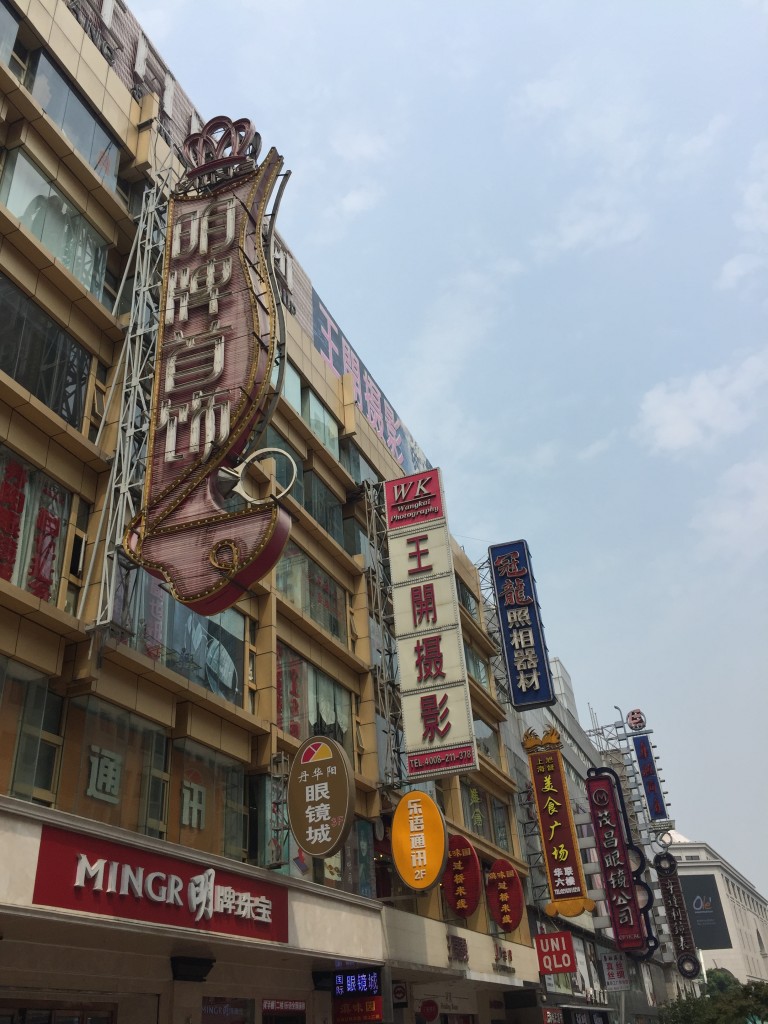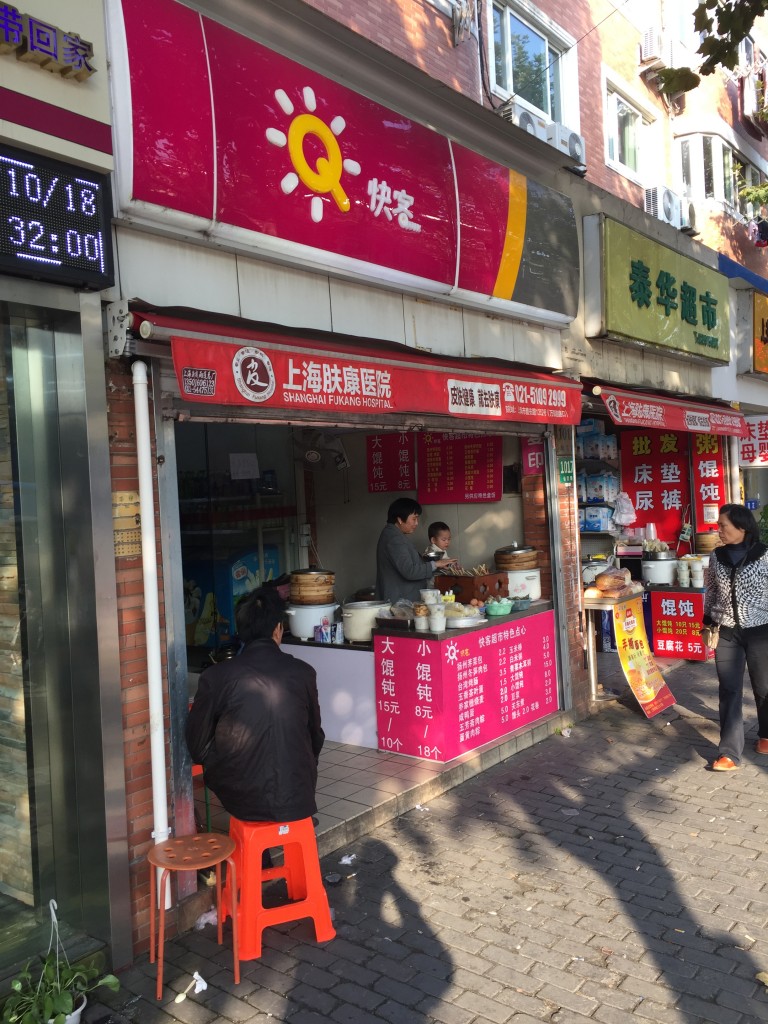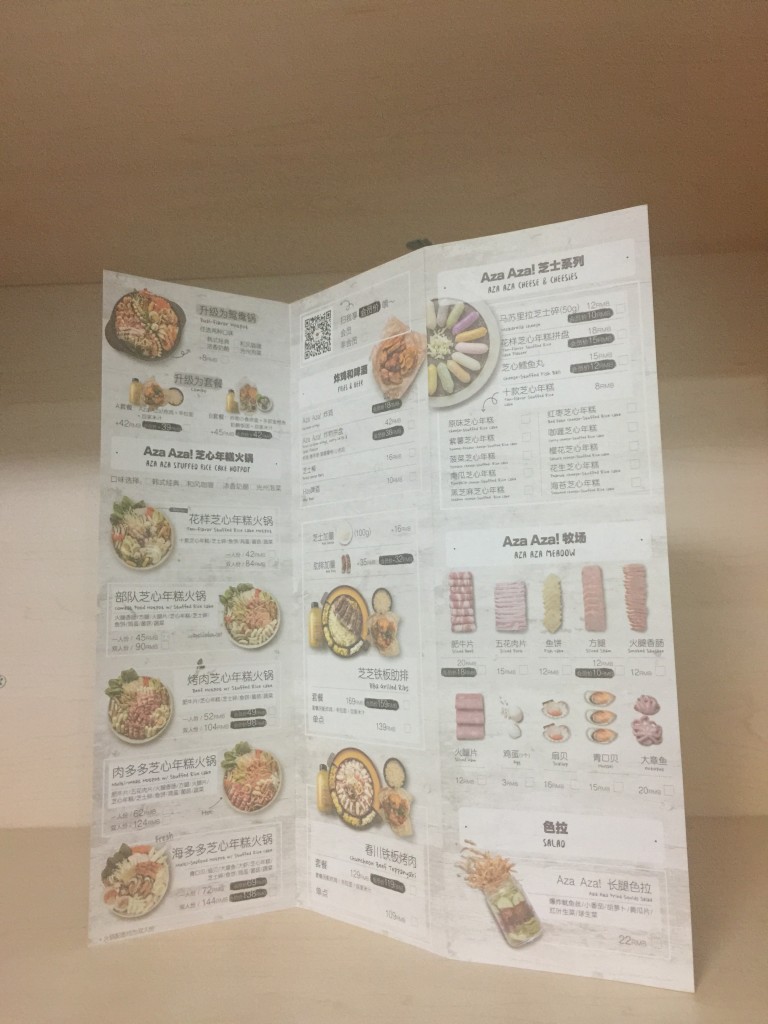 |
| Daily views of the Chinese street-side dignage |
 |
| A Famous Hangzhou tea field |
Probably the hardest place to be and not know Chinese is the restaurants that do not have English on the menu. I made the mistake of going to one such restaurant and had to just guess what I was ordering. Even if the menus do not have English, they do usually have pictures to point to when ordering. As I have learned more and more Chinese, it has proved enormously beneficial to my every day adventures in China. Being immersed in the culture makes it much easier to pick up on words and phrases that are helpful every day life in China.
 |
| A Street-side restaurant, no English in sight |
Many Chinese people, especially the younger generations know at least a little English and are often eager to help foreigners when needed. They also are very eager to practice their English with native speakers, and in return help us with our Chinese.
 |
| The Beautiful West Lake of Hangzhou |
Surprisingly enough, native English speakers have many opportunities to earn some money here and there by tutoring students, teaching classes, being recorded speaking English, etc. Native English teachers are in high demand and is a great place to gain some experience for education majors!
 |
| A typical menu of a nicer restaurant - half Mandarin, half English |
I would encourage anyone who is interested in studying in China, but who has reservations about the language, not be discouraged by that aspect. It truly is part of the adventure, and although it is not easy, it is why studying abroad in Shanghai is so special.
Matthew M. is the Fall 2016 CEA MOJO in Shanghai, China. He is currently a junior studying Global Business at Cedarville University










